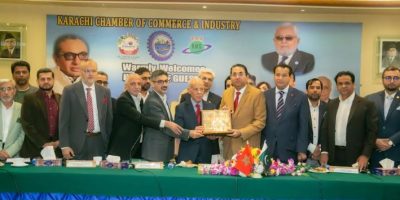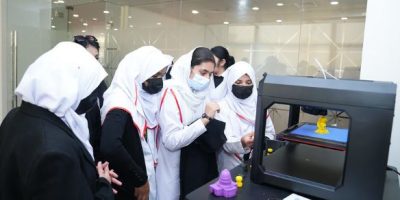Afghanistan, Pakistan vital to each other, says Ambassador Mosazai

ISLAMABAD, Nov 09 (DNA): Afghanistan and Pakistan are not just important to each other but vital. It is important to advance the goals of mutual cooperation at state to state level.Recognizing ground realities governing bilateral relations between the two countries can be conducive to peace talks. This is the best time for the Track II initiatives which are the best answers to embittered and tense situation to ensure that Pakistan and Afghanistan don’t descend into perennial conflict. The dialogue to deescalate the heightened tensions between the two countries is critically important.
These were the notions presented by the guest speakers during the first meeting of the visiting Afghan Civil Society and Youth Working Group with their counterpart Pakistani working group, held on Monday, November 9, 2015. The inaugural session of the workshop was attended well by the members of civil society, media, intelligentsia, government officials and diplomats from different embassies.
This is the initiative of the Center of Research and Security Studies (CRSS) – in partnership with its Afghan counterpart DURAN Research and Analysis (DRA) – who has launched a major Pakistan-Afghanistan Track 1.5/II project Beyond Boundaries, as part of its efforts to help improve relations between Pakistan and Afghanistan. Beyond Boundaries comprises two working groups, the Regional Security Group, and Civil Society and Youth Group, aimed at facilitating and promoting people-to-people contacts.
Janan Mosazai, Ambassador of Afghanistan to Pakistan said that the Government of Afghanistan fully supports track 1.5 and II initiatives while adding that both the countries are not just important to each other but vital. He underpinned the need to build on the commonalities that exist between the two nations.
“It is critically important to advance the goals of mutual cooperation at state to state level,” said Ambassador Mosazai, while underpinning the need to find solutions and coming up with effective strategies through dialogues and talks. Ambassador Mosazai said that it’s time to go from decisions to concrete outcomes and took steps to save our future generations.
“Enhancing people to people relations is not a side priority but a core priority of relations with Pakistan,” said Ambassador Mosazai while adding that the civil society in Afghanistan could become an extremely important stakeholder in improving relations.
H.E. Phillip Barton, British High Commissioner to Pakistan said that the British Government is extremely happy to support this major Pakistan-Afghanistan track 1.5/II initiative while underscoring the need to have better bilateral relations for both the countries. “Dialogue is always important and this is the best time for track II intervention,” said the High Commissioner while adding that the key to peace was dialogue; quoting peace process of Ireland.
Mr. Khurram Dastagir, Federal Minister for Commerce said that it’s Prime Ministers’ strong desire to end the years of mutual hostility between Afghanistan and Pakistan. He said that we had to reckon with this that there did exist mistrust and hostility and there was a need to steer the stakeholders towards negotiations.
Federal Minister further added that he recommended to the Prime Minister to intensify the cabinet to cabinet level contacts between two states. “It is critically important to bring together media people from both the countries to help improve the perceptions on each other,” he said while stressing the need to carefully think upon the bitter narratives between the two countries.
Mr. Imtiaz Gul, Executive Director of Center for Research and Security Studies termed that track 2 initiative a way forward for lessening the tensions. He said that it was an extremely important process to create buy in from all the stakeholders from both sides. “Recognizing ground realities governing bilateral relations between the two countries can be conducive to peace talks,” said Mr. Gul while adding that both the working groups were not there to settle the scores but to detox the narratives.
Related News

Political ties strong, trade must catch up, says Moroccan Ambassador
KARACHI, DEC 8 /DNA/ – Ambassador of Kingdom of Morocco, Mohamed Karmoune has said thatRead More

Newly launched USEFP Building Envisioned as a Center for Pakistan’s Future Scholars
ISLAMABAD, DEC 9 /DNA/ – The United States Educational Foundation in Pakistan (USEFP) on DecemberRead More


Comments are Closed